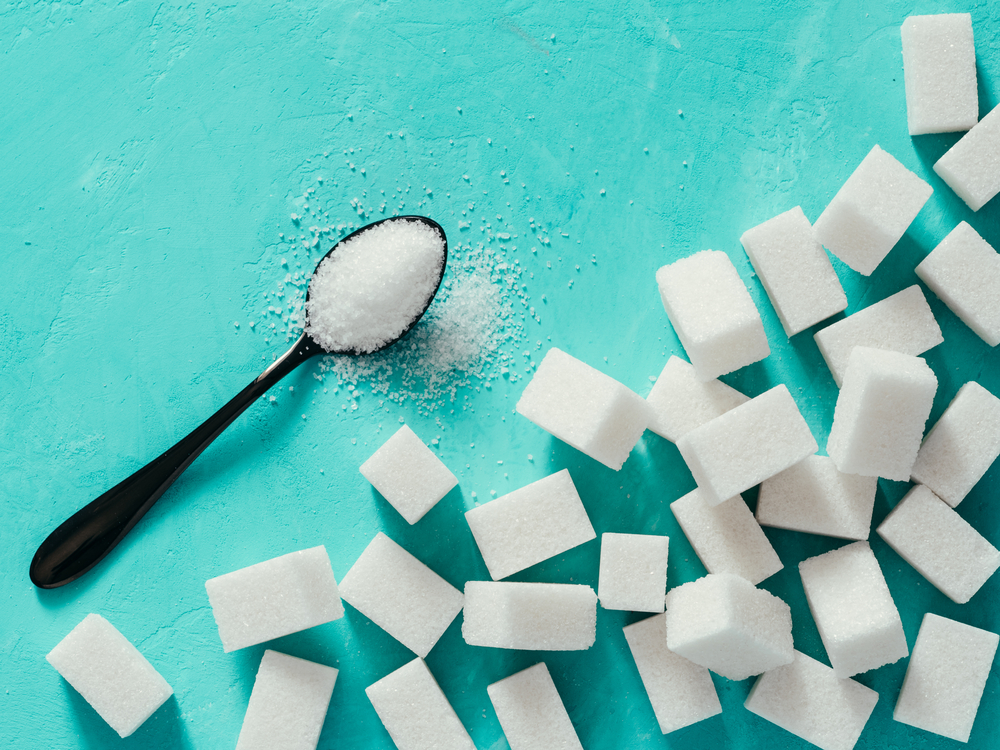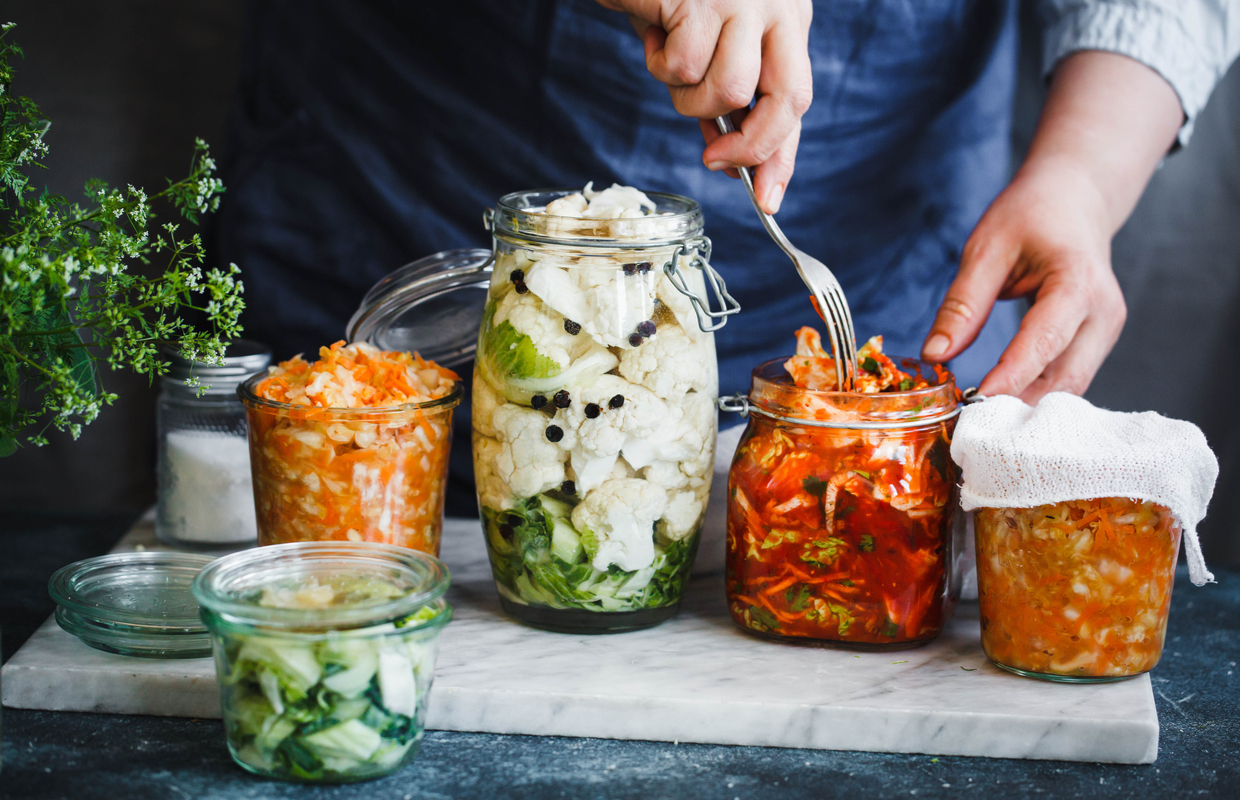 Despite eating a healthy diet, Pauline Cox, 40, was stressed and exhausted. The cause? Low stomach acid. It was this revelation that led her to re-evaluate her diet and lifestyle and why she is now thriving…
Despite eating a healthy diet, Pauline Cox, 40, was stressed and exhausted. The cause? Low stomach acid. It was this revelation that led her to re-evaluate her diet and lifestyle and why she is now thriving…
By Pauline Cox
Who was this tired, fatigued, anxious person I saw in the mirror? When did my tolerance to the challenges of life become so short and snappy?
This is exactly where I found myself a few months after giving birth to my second child. I’d worked as a health professional for years and felt confident that the choices I had been making were adding to my health.
However, I was becoming increasingly frustrated with what I felt was a blatant betrayal of my body. I made green smoothies, ate red meat (which contains iron) and took supplements, yet I was still tired all the time and clearly anaemic. I was giving my body what it needed, so why did things feel so difficult?
The reality was, I was following my strong beliefs about what I thought was a healthy diet, but I was tired all the time. Exhausted.
I was always short of breath; I felt like I could never get enough air into my lungs no matter how deeply I breathed. I suffered with palpitations and erratic heart beats; I struggled to sleep and was living on a short fuse.
None of this was ideal, especially with an energetic three-year-old, a three-month-old baby, and a business to run.
Finding the cause
The pain of living this way had become so insufferable that in the end it became the leverage I needed to seek out an alternative. What if I had been wrong? What if my body needed something it wasn’t getting?
So I began researching. I objectively looked at what I was doing at the time – eating a gluten-free vegetarian diet, but one that was packed with carbohydrates in the form of oats, grains, brown rice, dates – anything sweet I could dress up as “healthy”.
It dawned on me that I was a complete sugar addict! Sugar, it turns out, naturally depletes your zinc levels, a key nutrient needed to produce stomach acid. A highly acidic stomach is necessary in order to absorb key nutrients, including zinc. The less zinc you have, the less acidic your stomach becomes and the less zinc you absorb.
I had entered an unintended downward spiral, a sugar helter-skelter that had been depleting my nutritional reserves without even realising it. So then I started looking to my cellular physiology for guidance – what my body fundamentally needed to be healthy and to thrive.

Sugar naturally depletes your zinc levels, a key nutrient needed to produce stomach acid.
Zinc: the key to low stomach acid
I discovered that not only did sugar deplete zinc levels, but that women on the contraceptive pill for a number of years tended to have lower levels of zinc in their bodies, too, as the pill depletes the body of this mineral. Breastfeeding also depletes zinc as well as iron and so I had created the perfect storm for myself. I just had no idea.
Not only was I low in zinc but I was chronically stressed, breastfeeding a young baby and caring for a toddler, existing on little sleep and nutritionally depleted. These were all things I learned were contributing to my low stomach acidity, as stress has been shown to deplete stomach acid levels, as well as a deficiency in vitamin B12, which requires an acidic environment for absorption.
‘I was low in zinc, feeling stressed, existing on little sleep and nutritionally depleted. All of this contributed to my low stomach acidity.’
Why do we need highly acidic stomach acid?
The key to optimum health lies in absorption of nutrients, and absorption starts in the stomach. The stomach is designed to be a highly acidic environment. At optimum levels, it has a pH of between pH1-3. This is very, very acidic. A less acidic stomach leaves you vulnerable to invasion by foreign bacteria and gastrointestinal infections.
You also need a very acidic stomach to break down protein, as well as to absorb key vitamins and minerals. Zinc, B12 and iron all require an acidic environment in order to be effectively absorbed. And therein lay my problem.
My constant fatigue, chronic anaemia, poor skin health, brittle nails and bloating, all pointed to poor stomach acidity. I didn’t have enough acid to absorb the iron and B12 that I desperately needed. I was popping iron pills and sautéing spinach to no avail – my gut was closed for business. There was just no way it was going to absorb iron in that non-acidic environment.

‘My constant fatigue, chronic anaemia, poor skin health, brittle nails and bloating, all pointed to poor stomach acidity.’
Making changes to tackle low stomach acid
After discovering my low stomach acid, I threw myself into a new lifestyle and set about creating the optimum conditions required within the stomach to absorb nutrients.
This involved drinking 20ml of apple cider vinegar before eating, munching on raw vegetables throughout the day as the high levels of enzymes help break down food, and avoiding drinking water during mealtimes as this only serves to dilute gastric juices.
Increasing nutrient density was also key. Zinc-rich foods, such as pumpkin seeds and lamb, magnesium-rich foods – nuts, seeds and dark chocolate – and greens and potassium-rich foods, such as avocados and leafy greens, became staples in my daily diet. I believe the addition of these key nutrients helped restore my gut health.
Once I had created the optimum conditions for my stomach, I invested in a few essential supplements that are easily absorbed, ensuring I got the full benefit. First on my list was Wiley’s Finest Peak EPA Fish Oil as omega-3 fatty acids have long been shown to have anti-inflammatory effects, as well as the potential to boost immunity through their effects on white blood cells. I quickly noticed improvements.
The more I learned, the more changes I made. Now that my body has the nutrients it needs, I feel like a new person!
‘Zinc-rich foods, such as pumpkin seeds and lamb, and magnesium-rich foods, such as nuts, seeds and dark chocolate, all became staples in my new diet.’
How to improve your stomach acidity
1. Eat slowly
Slowing down when you eat stimulates the production of gastric juices in preparation for digestion. We are all in such a hurry all the time. Savour your food and chew 20-30 times per mouthful.
2. Avoid drinking water during meal times
Try not to drink water at least 40 minutes either side of eating. Water only serves to dilute your gastric juices.

Fermented foods like sauerkraut are great for increasing stomach acidity.
3. Eat fermented foods
Fermented foods are fabulous and in terms of increasing stomach acidity, foods such as sauerkraut are swimming in lactic acid, perfect for increasing stomach acidity and improving digestion.
4. Eat raw veggies
Add some fresh raw veggies and salad onto your lunch plate. Raw foods contain high levels of enzymes, ideal for breaking down food, especially when doused in an acidic vinaigrette dressing packed with goodness.
5. Use apple cider vinegar
The fermented drink is high in acetic acid. This helps to re-acidify the stomach, as well as introduce a host of good gut bacteria.
Drinking 20ml of apple cider vinegar before eating not only acidifies the stomach, but reduces the blood glucose spike after meals, reducing the need for insulin, therefore encouraging fat burning.
Primal Living in a Modern World: Recipes and Daily Habits by Pauline Cox (£28.95, sowandarrow.com) is out now.







